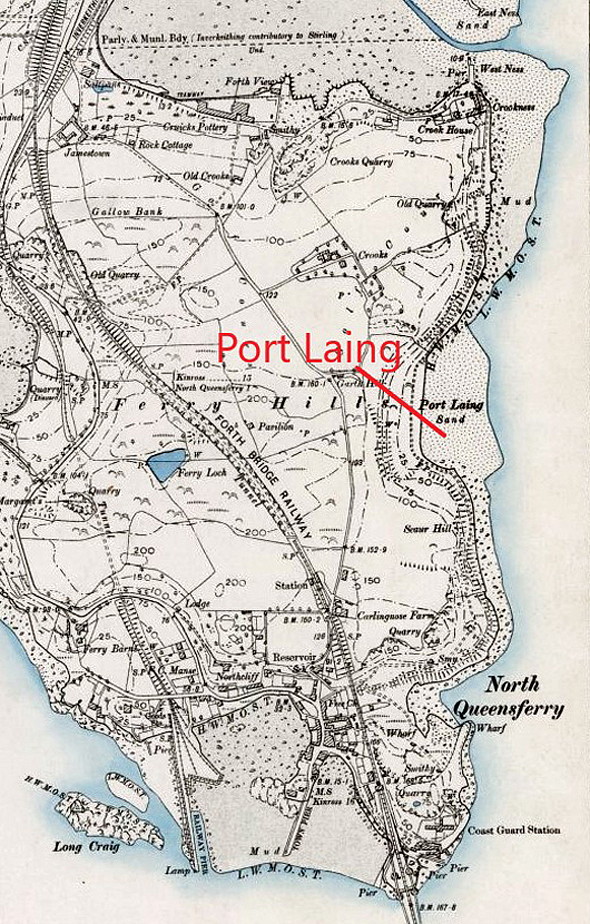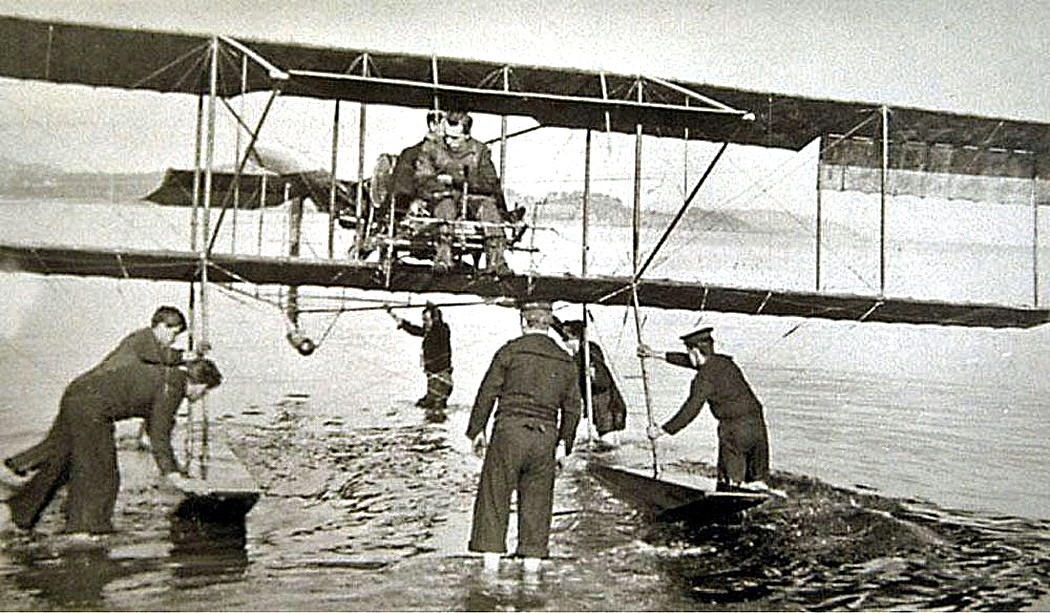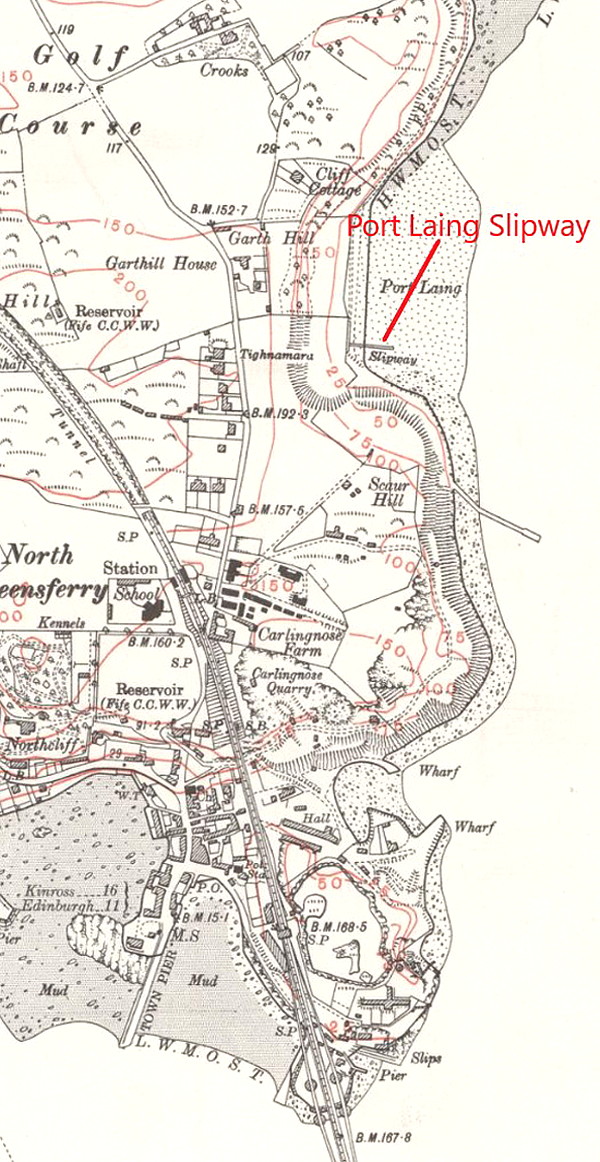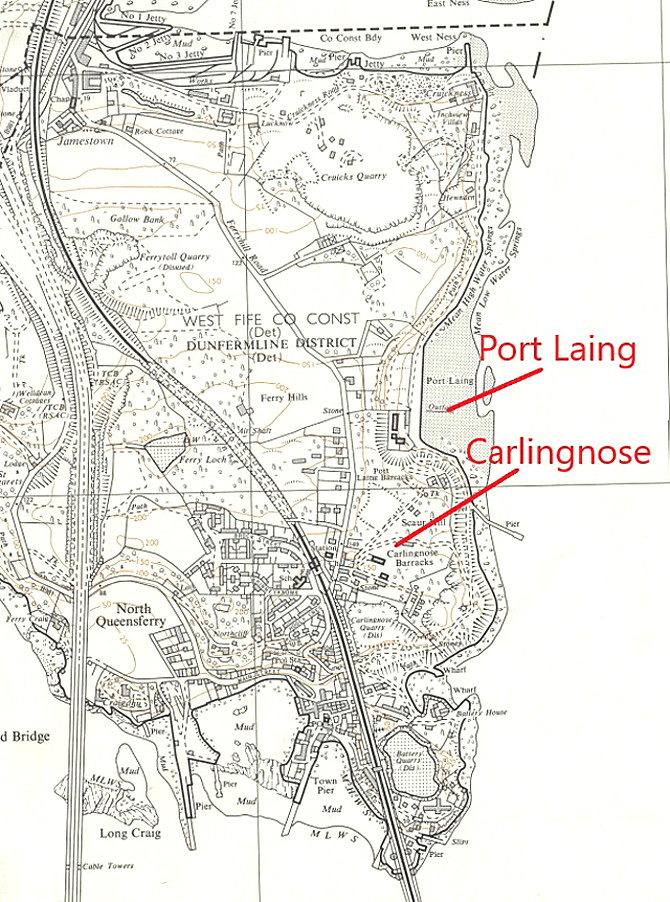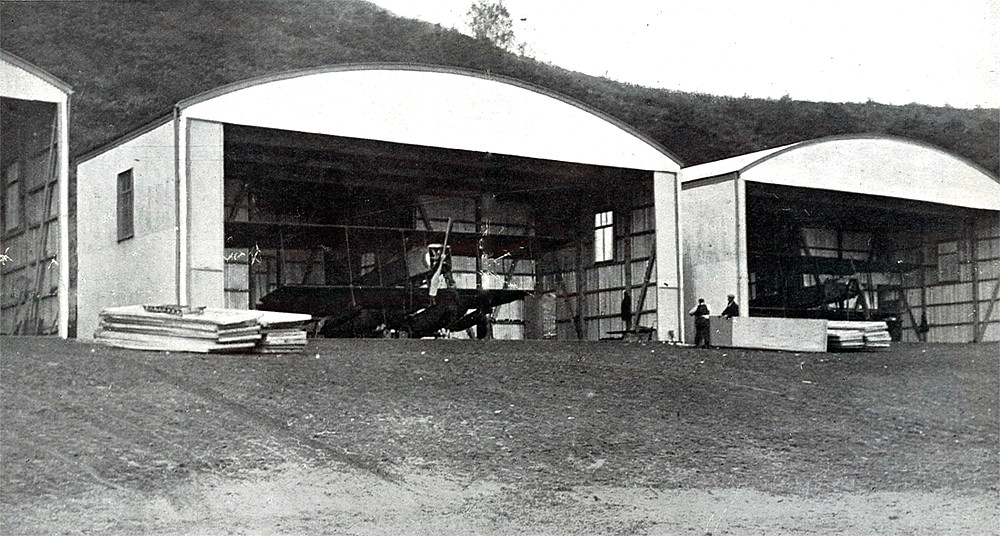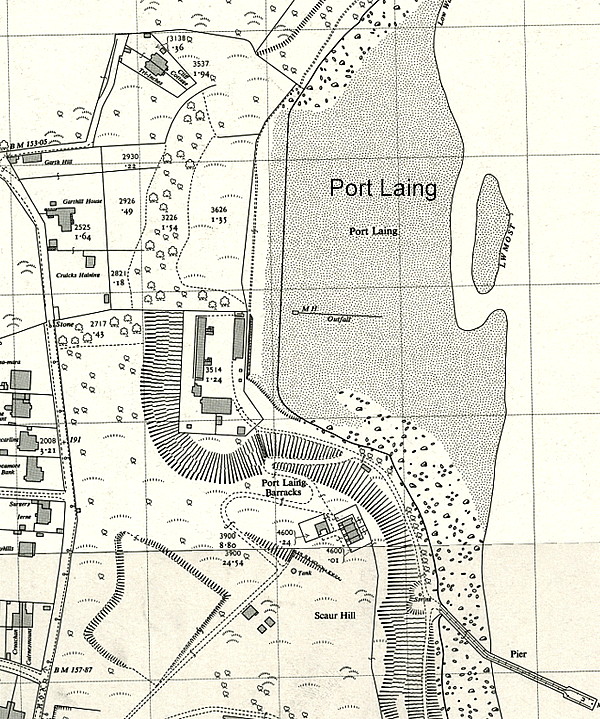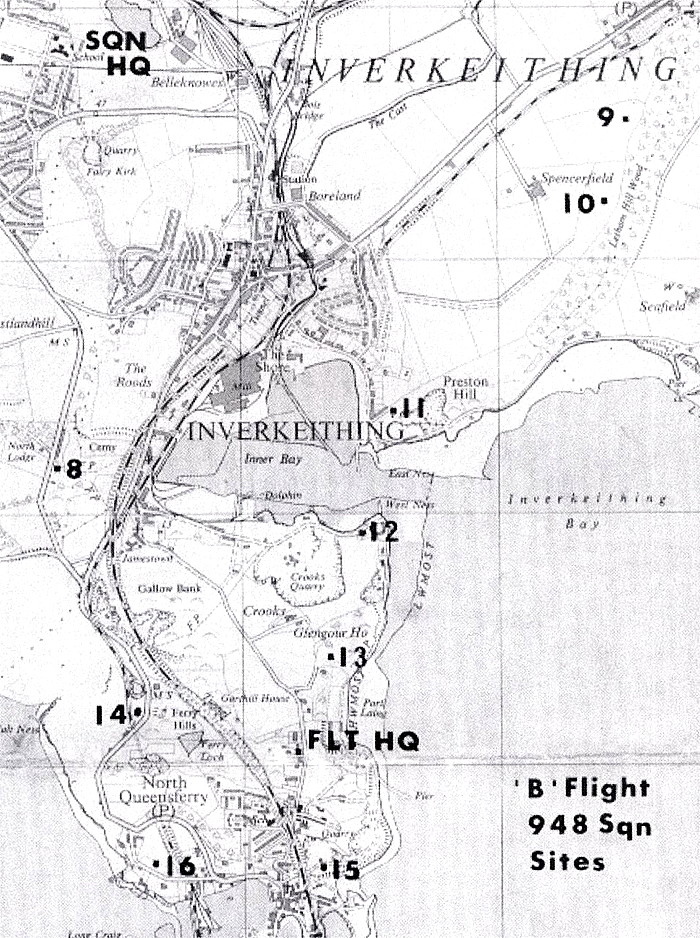Carlingnose
CARLINGNOSE: Seaplane Station (Hydroplane Station)
Note: See the listing for PORT LAING for more info and pics.
Military user: RFC Naval Wing, later RNAS Station
Location: N to NNE of North Queensferry
Period of operation: October 1912 to 1917
A MICHAEL T HOLDER GALLERY
The Picture One, probably of a Henry Farman III (?), was published in The Sphere during April 1912.
There is an account of a huge packing case labelled "Aeroplane, Henry Farman", being off-loaded from a naval lighter on the shore.
The Picture Two, of a Short S.41 being pulled manually up the beach, was published in the Edinburgh Evening News on the 3rd October 1912.
Picture Three showing two of the hangars with a Short S.41 stowed in each, was published in The Scotsman on the 3rd October 1912.
NOTES: I have found evidence that this site was also known as CARLIN NOSE.
SCOUTING DUTIES
It appears that the main purpose of the aircraft based here was to perform scouting duties in cooperation with the North Sea Fleet which, amongst many other tasks over a much greater area, were charged with the defence of the Firth of Forth. Not least the Naval dockyards at Rosyth which are just west of CARLINGNOSE, and of course the Forth Bridge which is just south.
In October 1912 Cdr. Samson RN, Capt. Gordon RN, and Lieut. Hewlett were flying two Short S.41 seaplanes here. 70hp and 100hp versions. It appears that amongst other things, experiments in bomb throwing, reconnoitering over torpedo boats and submarines, and tests in signalling to warships using a siren were carried out. Hard to imagine how the latter was conducted, but perhaps using morse code? But, if so, just how big a siren could be carried, and, how was it powered?
A QUESTION?
Trying to untangle so much of our aviation history is, today, pretty much an impossible task in so many respects. Accounts often vary., and this kocation is a good example. Several reports at the time indicate that this location was to be moved to Dundee in 1914. Whereas others state it was still in operation until 1917. What is without any doubt it would seem, is that it was certainly operational from 1912 to 1914.
AN EXPLANATION
Sometimes an issue of some confusion, the RFC (Royal Flying Corps), also had a Naval Wing. The RNAS (Royal Naval Air Service) was formed on the 1st July 1914, just before WW1 was declared on the 28th July 1914.
ONE AND THE SAME
I have another listing for a site operating in this area, known as PORT LAING. They are in fact the same. PORT LAING being the most accurate description of the location.
We'd love to hear from you, so please scroll down to leave a comment!
Leave a comment ...
Copyright (c) UK Airfield Guide














